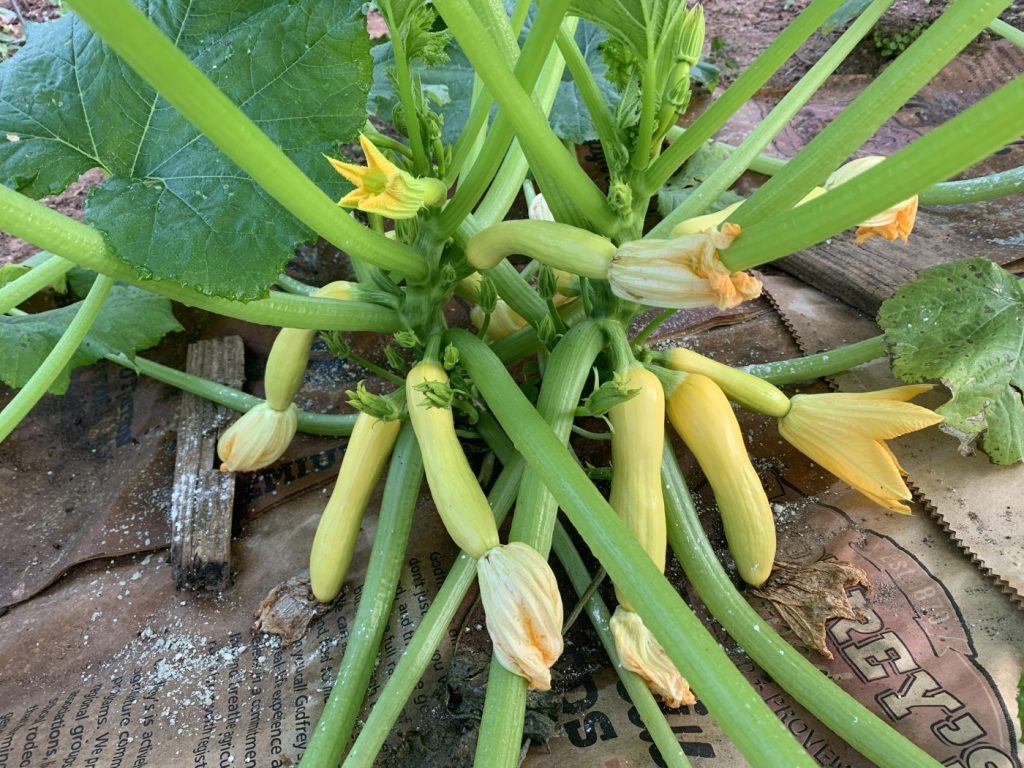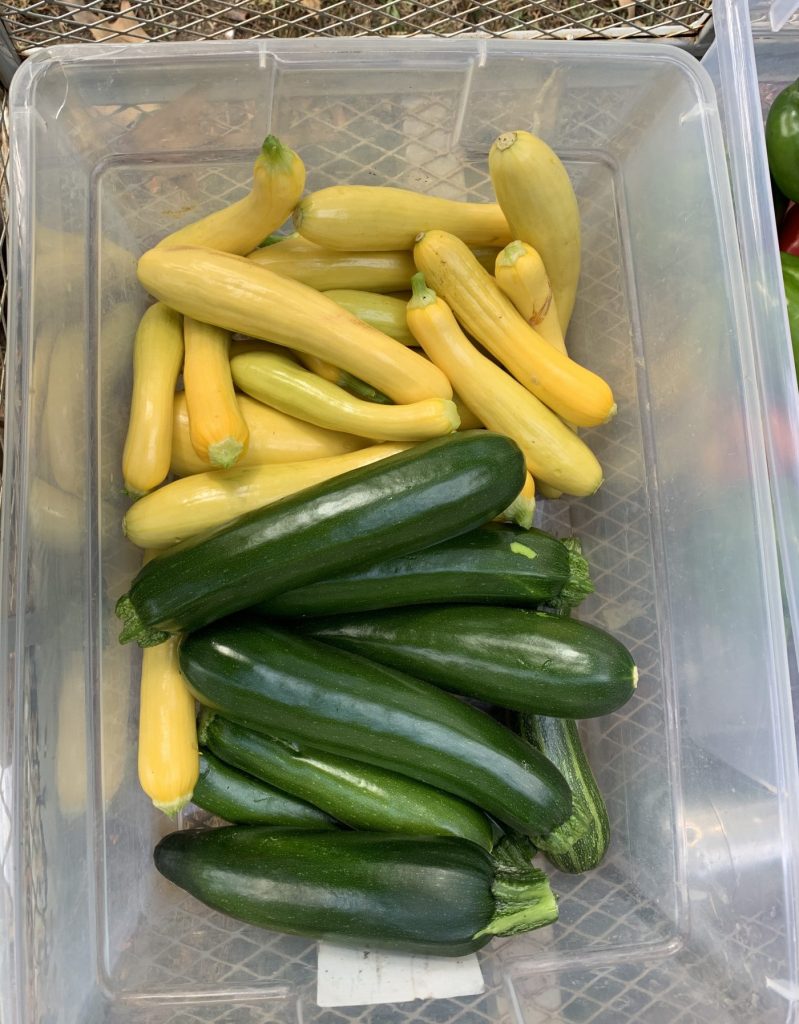Menu
Author – Steve McCannon
I really believe they thought I was crazy when I planted 30 hills of squash about August 10. Conventional wisdom and old farmers wisdom said you could not possibly grow squash or any of your traditional summer crops at this time of the year: The heat would be too harsh, the insect and fungus pressure too high. Especially without using extreme chemical methods of pest control.
I had heard of an organic program to keep squash plants healthy by the horticulture department of Spartanburg Tech and honestly the temptation to try it out on a late crop of squash was too tempting, so I planted the seeds and gave it a try. Boy, am I glad I did.
True to squash form the seeds sprouted in very short order and the plants began growing quickly. I had planted them over an existing row that already had trickle irrigation tape buried there from an earlier crop of beans that had been pulled. The squash was weeded and mulched with paper feed sacks; something that we have an abundance of. When the first buds appeared, a dusting of diatomaceous earth was sprinkled around the base of plants. When the plants began to bloom, a preventative organic spray mixture was applied to control vine borers, fruit worms and fungus. The picture at the top was made on September 29 as fruit began to set.

This is a picture of an early harvest from those plants, it was taken on October 10. I think there was one harvest earlier than that one; I was 100% pleased with the results of this experiment. The squash was very high quality, clean fruit with little insect / worm issues. I made one additional spraying about October 15 when we noticed a few fruit with fruit worms and powdery mildew of the yellow squash leaves. The only issue with the two zucchini varieties was the occasional fruit that got lost in the leaves and was finally removed from plant as a prime candidate for Zucchini bread. I believe our largest weighed in at nearly 5 pounds. The zucchini plants remained completely healthy and productive until frost on October 31.

I will fully proclaim this experiment as a success. Plants were all producing well on October 31 when we had our first killing frost. What do I attribute this success to? I believe 3 factors played a huge part.
Cedar Ridge Farm
6010 Liberty Highway
Pendleton, SC 29670
(864) 209-1128
Copyright © 2024 Cedar Ridge Farm | Site by Upstate SC Web Design